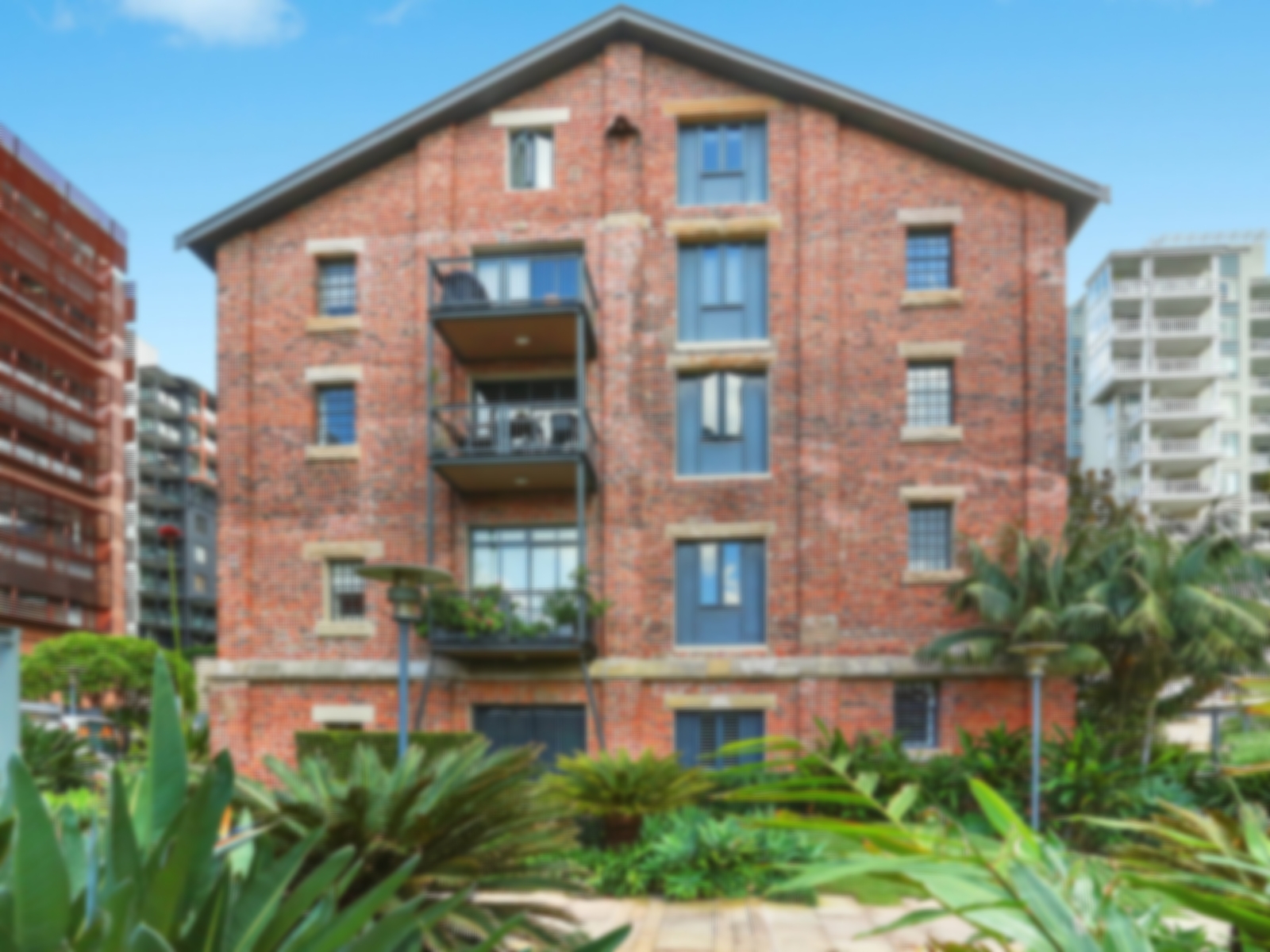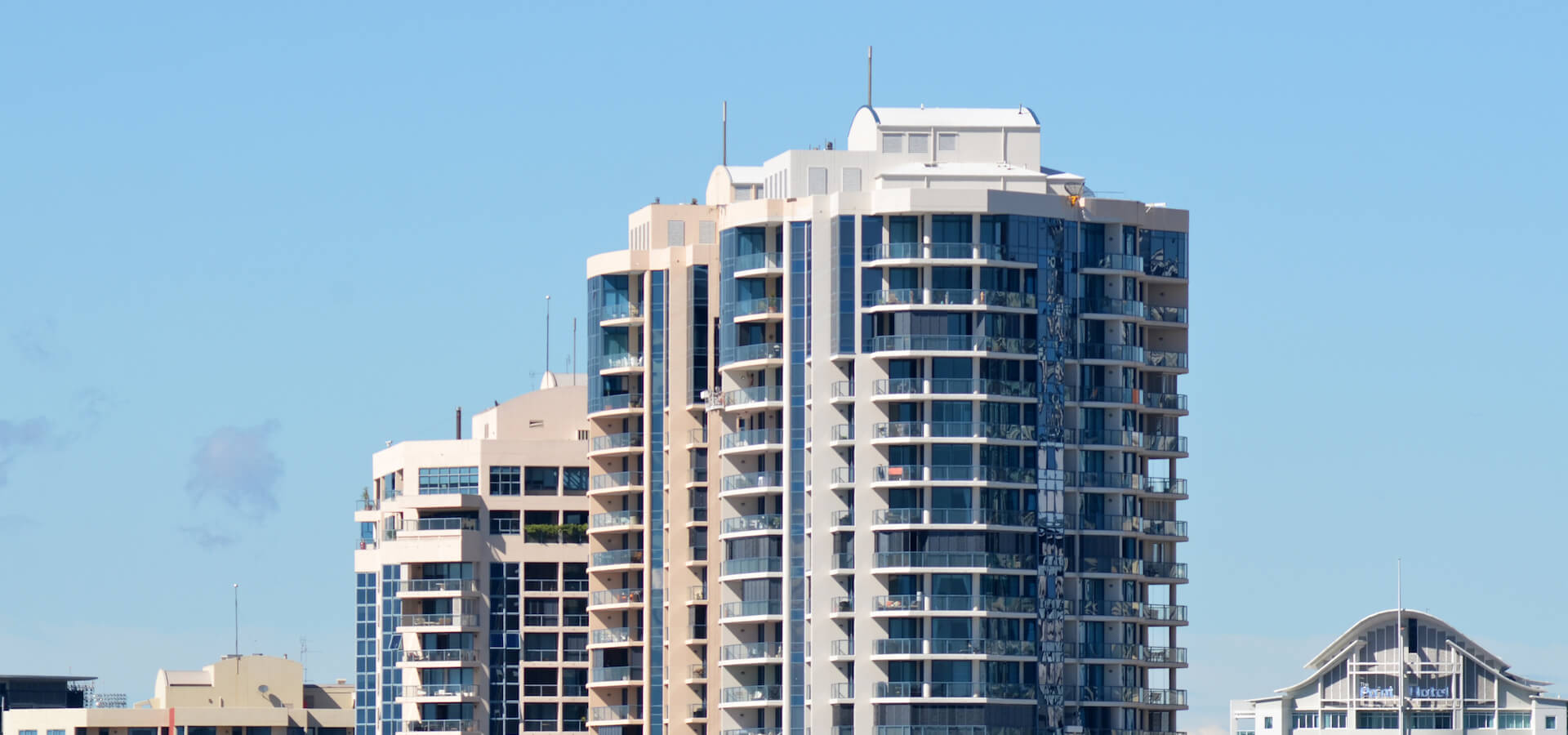‘Am I paying too much in owners corporation fees?’. With no two properties ever the same, this question is as hard as comparing apples to cheese. There are various factors that come into play, but the most significant are the number of lots in the building, the design and facilities – and no, location has little to do with it. Here are some pointers to help you better calculate how much you can expect to pay.
 For sale: 401/6 Mount Street Walk, Pyrmont, NSW
For sale: 401/6 Mount Street Walk, Pyrmont, NSW
Building size
Boutique-sized apartment buildings typically have less common property, which means less cleaning, repairs and maintenance, and lower utilities. Small apartment buildings with a lean number of lots (an individual plot of land that is owned) also tend to have fewer high-cost facilities to operate and maintain.
 For sale: 706/65 Beach Street, Port Melbourne, VIC
For sale: 706/65 Beach Street, Port Melbourne, VIC
However, small is not always better. Large apartment buildings with more than 100 lots are more expensive to run, but will have the economies of scale to significantly reduce the cost per lot owner, simply because there are more people to share the costs. A swimming pool in a large complex with 100 lots, for instance, can cost each lot owner as little as $1.50 per week.
Having an economy of scale also comes in handy when owners corporations or bodies corporate have to raise special levies or fees for unexpected or urgent expenditure such as roof repairs or asbestos removal. Imagine having to raise $50,000 amongst only 10 lot owners. The same principle applies to base charges such as bank account management – the fewer lots there are to share the costs, the more you will have to pay.
Design
When it comes to owners corporation and body corporate fees, very few people consider the impact the choice of bricks and mortar can have on ongoing maintenance fees. Take, for example, timber, which is a popular choice for walkways and decking. Sure, it’s a premium building material and it looks great, but it also risks splinters, warping and rotting, and will need to be cleaned, oiled and repaired yearly.
Timber decking around a standard pool, for instance, can cost anywhere between $7,000 to $10,000 a year to maintain. Now divide those costs between how many lots there are in the building, and you’ll have a better idea of how much it contributes to the overall cost of your fees.
 For sale: 2003/211-223 Pacific Highway, North Sydney, NSW
For sale: 2003/211-223 Pacific Highway, North Sydney, NSW
Don’t overlook common areas such as lawn and gardens either, especially if you don’t have the economy of scale to share the costs. There are low maintenance options for outdoor areas, such as gravel, paving and native plants, but even the most basic garden will require some tender love and care, and therefore maintenance costs.
Facilities
This is the most obvious reasons for high owners corporation or body corporation fees, especially in small to moderate-sized apartment buildings. Swimming pools, gyms, cinema rooms, barbecue areas, and even lifts and automatic garage doors will add to the overall cost of your fees. In larger complexes, you may also have to pay for on-site staff such as concierge or a building manager, which can add hundreds of thousands to your owners corporations’ overall expenses. You might like the idea of a 24-7 concierge, but it will set your owners corporation back by up to $280,000 a year.
 For sale: 1604/7 Riverside Quay, Southbank, VIC
For sale: 1604/7 Riverside Quay, Southbank, VIC
In most large complexes, it’s hard to avoid some of these features, especially in new developments. There comes a point, too, when convenience trumps expense, like having that on-site gym and having little excuse not to go in the morning.
Financial status
If you live in an established apartment building, how your property is managed will be a big contributing factor to how much you pay, too. Before you buy, ask to have a search of the records undertaken, so you have an idea of spending and what’s already in the kitty. Poor budgeting and careless spending can have a flow on effect for years.
If the fees seem too good to be true, they probably are. Insufficient funds tend to lead to special levies, which can place a financial burden on owners. And more generally, don’t enable you to meet your obligations to maintain common property.
For more advice on purchasing an apartment check out these strata need to knows and rules of apartment living.





